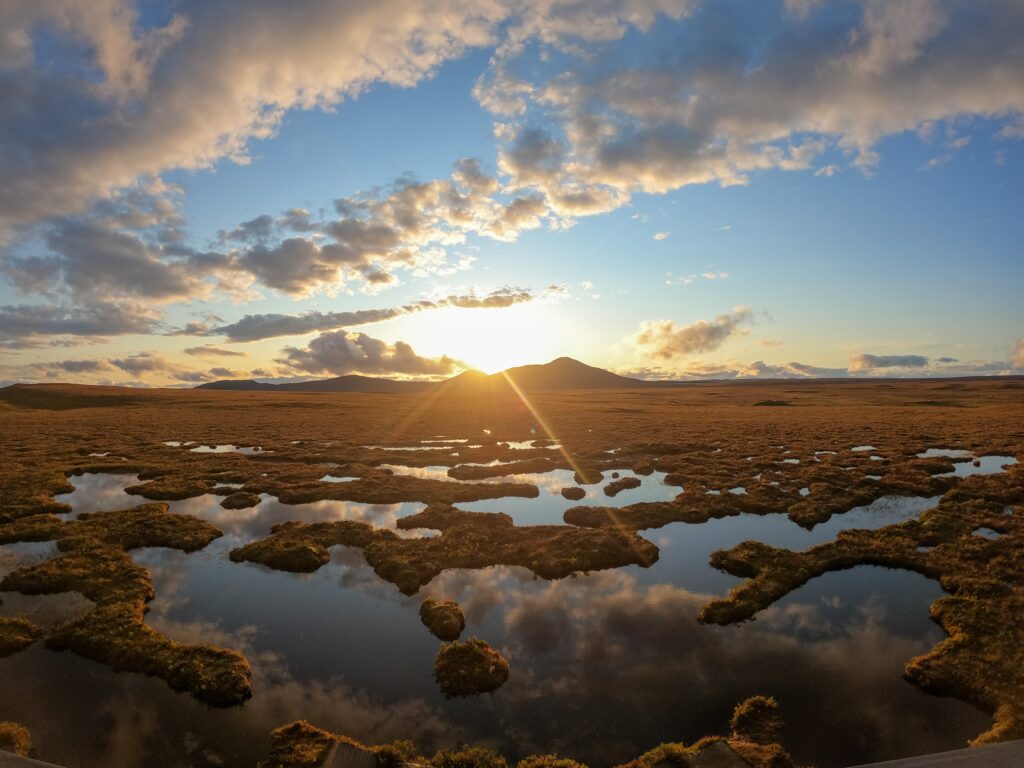
In order to understand how carbon accumulation in Northern Hemisphere peatlands may likely change in the future, it is useful to look at how carbon accumulation varies in modern day ‘extreme’ (‘dry’) peatlands located in the Falkland Islands.
Researchers Dmitri Mauquoy, Clemens von Scheffer and Tom Theurer recently travelled to the Falkland Islands and spent around two weeks sampling the peatlands there.
What is your research about? The aim of our research is to understand the relationship between long-term peatland carbon accumulation rates, burning disturbance, the types of former peat forming plants and climate change across the Falkland Islands.
Dr Dmitri Mauquoy explains: “Peatlands are valuable ecosystems which take up and store carbon, mitigating the effects of climate change by taking greenhouse gases out of the atmosphere. For millennia they have captured carbon dioxide (a greenhouse gas) from the atmosphere and locked it away as peat. One of the consequences of recent climate change and human disturbance is that peatlands are now becoming more fire prone due to drainage, higher summer temperatures and reduced precipitation, which creates a water deficit. In order to understand how carbon accumulation in Northern Hemisphere peatlands may likely change in the future, it is useful to look at how carbon accumulation varies in modern day ‘extreme’ (‘dry’) peatlands located in the Falkland Islands”.
What happens with the samples you collected? Clemens von Scheffer will now undertake a range of palaeoecological analyses of the samples we collected from 4 peatlands across West and East Falkland.
What was your experience during field work? The Falkland Islands are a really fascinating place to visit and the local people are friendly, kind and a lot of fun!
Related Content
Full article available here: https://www.abdn.ac.uk/geosciences/news/15913/
Notes for Editors
| Reference | https://www.abdn.ac.uk/geosciences/news/15913/ |
| Published | Monday April 4th, 2022 |





















































